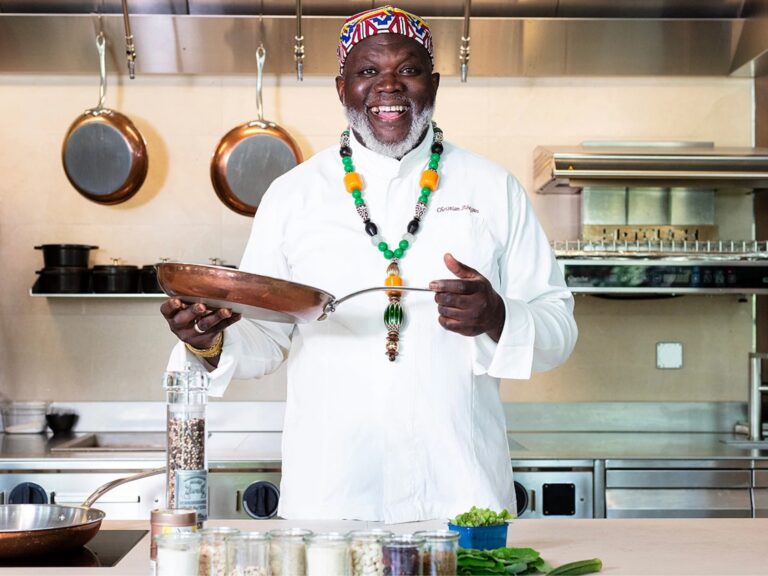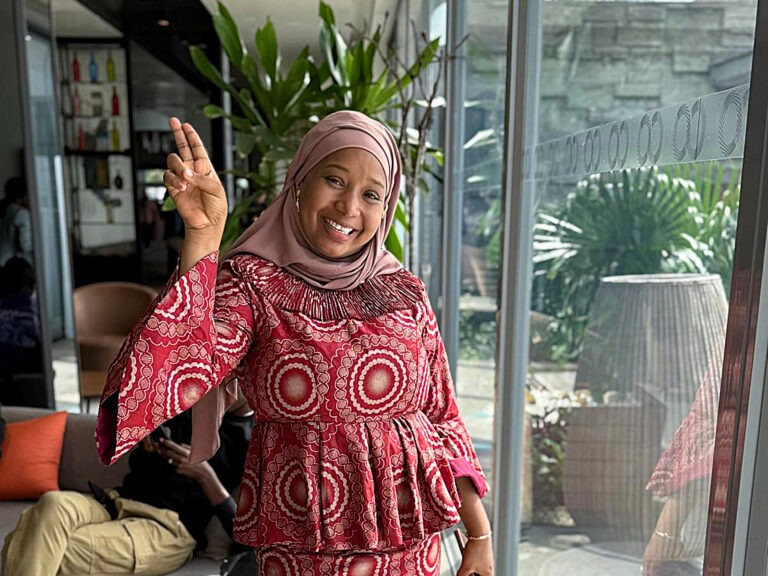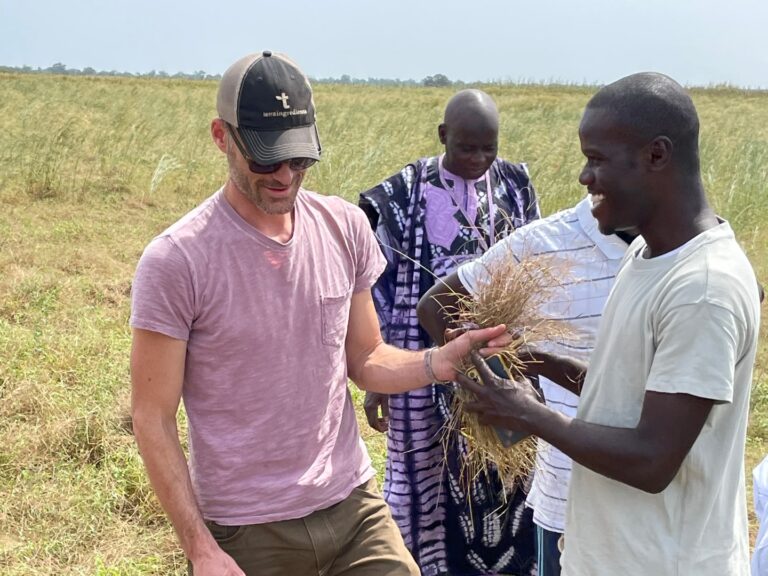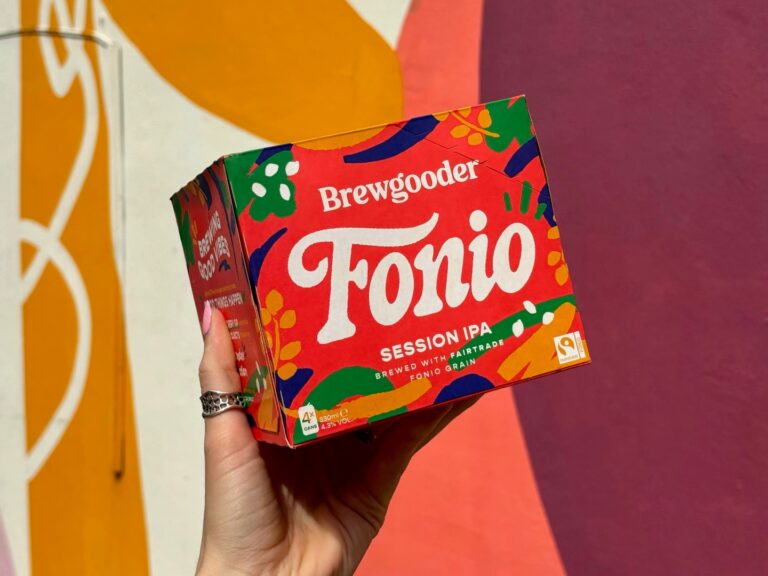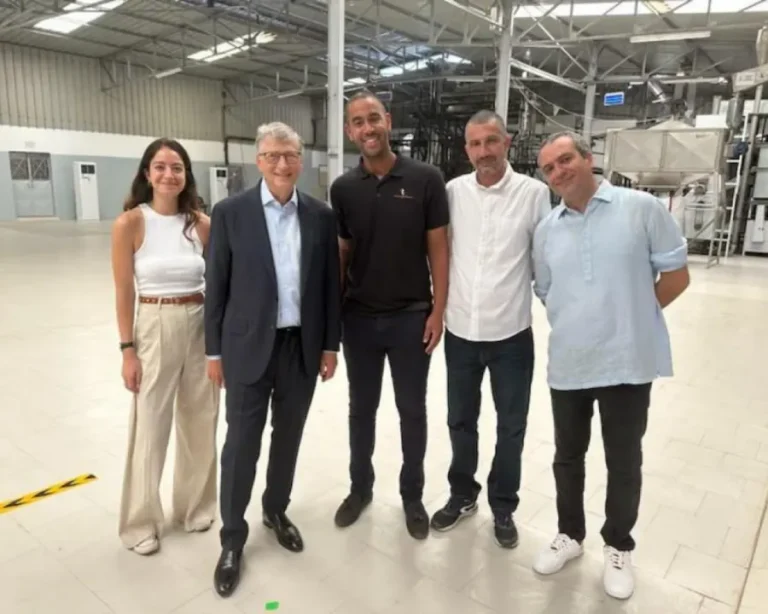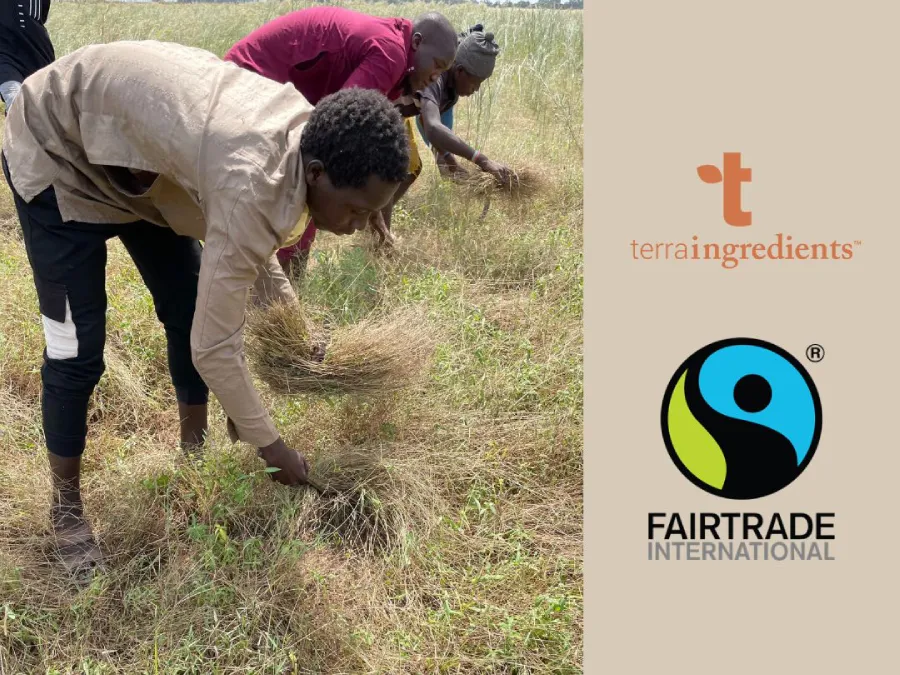
We are excited to announce that Terra Ingredients and our network of fonio farmers in Guinea, West Africa are now officially Fairtrade certified. This comes after an extensive audit of our entire supply chain, from the farms in West Africa where fonio is grown on through final processing. We’re proud to now offer Fairtrade certified organic fonio to our customers, and thus, to consumers. Although Terra Ingredients has always prided itself on providing quality organic ingredients that are ethically and sustainably sourced, receiving this certification gives consumers the added guarantee that fonio they purchase from our customers has a direct and positive impact on small-scale farmers in Guinea.
Receiving a Fairtrade certification is crucial for food brands and consumers alike. For brands, it demonstrates a commitment to ethical sourcing and responsible business practices, enhancing their credibility and appeal to socially conscious consumers. Moreover, Fairtrade certification assures consumers that the products they purchase have been produced in accordance with strict social, economic, and environmental criteria, thereby supporting the livelihoods of marginalized farmers and workers while promoting sustainable practices in global supply chains.
To discuss the finer details of what this certification means, we conducted a Q&A with Terra’s Director, Peter Carlson, and Malick Diedhiou, leader of the fonio initiative in West Africa:
Q: What does a Fairtrade certification mean for Terra Ingredients’ fonio initiative?
Peter Carlson: First of all, Terra is extremely excited to be able to now offer Fairtrade certified organic fonio. We’re currently the only company in the market to be able to do this and it’s been a positive effort all around since we began the certification process. For us, the certification is external validation of our supply chain and we’re very proud of what we’ve built with our partners in Guinea.
Internally, Terra has always applied the same ethical business practices that would be required to be considered a Fairtrade product for all of our ingredients, so the official certification is an extra validation of our values that consumers will immediately see on labels when they purchase products from our customers and brand partners. The added benefit of certification from an independent, third-party is not only proof of our existing practices of paying fair prices to fonio farmers for their grain, but also a guarantee that as the market grows and prices fluctuate due to competition in the future, Terra will always pay a fair market price, plus an additional “social premium” above that rate as required by Fairtrade International’s regulations. That additional premium then goes directly to the farmers, providing them with additional economic benefits for their labor. This has always been part of our core mission at Terra as a farm-centric company, but it’s great to be able to put this label directly onto fonio products so that consumers can know that their money is actually going to the farmers.
Ultimately, it’s a credible recognition for some of the fonio that Terra provides to our customers. I say “some” of our fonio, because even with our non-Fairtrade certified fonio in other regions throughout West Africa, we’re giving the same value to the producers—and the same care and concern for the product still goes into Terra’s supply chain beyond the Guinea project.
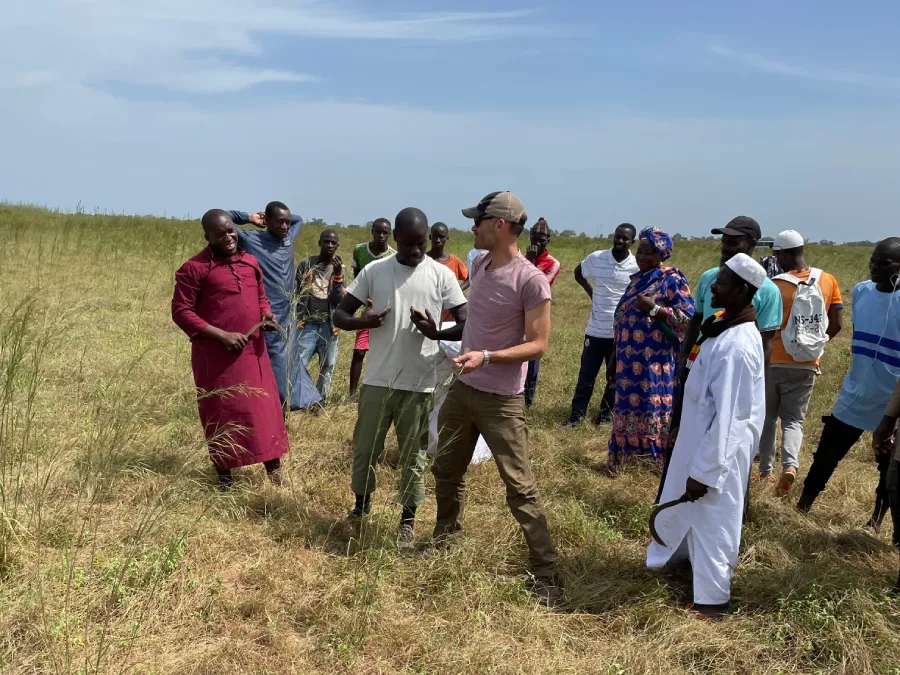
Q: You mentioned that Terra has already been using the same compensation standards with farmers that a Fairtrade certification requires—what exactly is that requirement?
Peter: Correct, we have already been paying farmers using the same metrics that Fairtrade International requires long before we ever intended to apply for certification, which requires that suppliers like Terra are paying above the Prevailing Market Price (PMP) for organic fonio. We have always paid our farmers above the PMP and given them the best price for their fonio, which can have a significant impact on their communities. This is a critical part of the auditing process to confirm that these rates were being paid to farmers, a cost that is ultimately covered by the end-buyer.
Since Terra pays the farmers directly at this increased rate prior to supplying it to our customers, it guarantees that the farmers receive the immediate added economic benefit for their product. Our customers then purchase the fonio from us with the Fairtrade social premium already included in the cost, which also ensures that brands aren’t making grand claims about their purchasing practices without actually showing up on the ground-level by contributing the additional premium to the farmers. This also allows them (food brands) to use a “Fairtrade Certified” label on all of their products, letting consumers know that their purchase is having a direct impact on small-scale farmers in West Africa.
Q: How will the Fairtrade certification impact farmers who work with Terra?
Malick Diedhiou: Being Fairtrade certified is important because the fonio farmers are getting the direct benefit of increased income for their labor on the front-end and the additional social premium for Fairtrade fonio flows directly to the producers—which can be used on the community-level for various projects. One of the biggest areas of need with fonio farming is enhanced production efficiency as it is a very difficult grain to process due to its small size. Buying threshers and investing in infrastructure and new farming technology is exactly what the social premium from Fairtrade sales is designed to be used for.
Improving the processing technology is also where we (Terra Ingredients) are focused. Terra has already supplied threshers to multiple farm co-ops in West Africa and partnered with CAA to build a modern fonio processing facility in Dakar, Senegal, which have already significantly improved processing speed and efficiency over traditional methods. At the end of the day, production efficiency-gains hold most of the opportunity to make a positive impact on fonio producers in the long-term. This is because fonio has traditionally been farmed by hand, which is not scalable and can really only be done for sustenance with those methods. However, improved production efficiency will equate to more income per hectare of land for fonio farmers.
Thus, the Fairtrade certification gives the farmers the up front security that they will be fairly rewarded for their efforts in the immediate future, while the work we do to make fonio processing more efficient is what gives them long-term potential for even higher profit margins. If we can achieve this, there will be a real economic impact on the farm-level, as well as the surrounding communities.
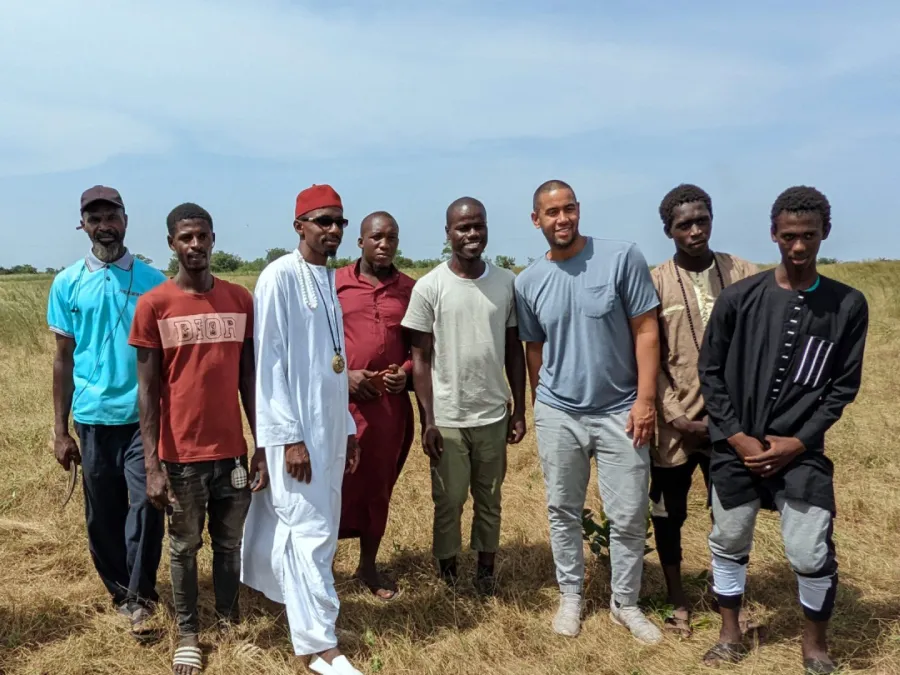
Q: Who did Terra Ingredients have to work with to get the Fairtrade certification?
Malick: The certification process was conducted by FLOCERT GmbH, an independent certification body that specializes in providing Fairtrade certification to organizations around the world. They focus on ensuring fair labor practices and sustainable development by conducting rigorous assessments to verify that companies meet the standards set forth by Fairtrade International. Since every participant in the fonio supply chain needs to be certified, from farmer to seller, we also had to work with a handful of additional parties during the auditing process including:
- A farmer group/co-op that is based out of Koubia, Guinea, in the heart of the fonio belt in the Foutah region.
- Maimouna Diallo, an entrepreneur in the region who is the president of the farmer co-op that we are working with in Guinea and who farms fonio herself. She was the key person organizing everything on the ground in Guinea throughout the certification process.
- Osman Diallo, who is the co-founder of the fonio Fairtrade initiative in Guinea together with Maimouna and is based in Norway.
Osman, whom I have known for many years through the agricultural community in West Africa and my time as a commodity trader, made the project possible. Specifically, he spearheaded the idea together with Maimouna, who is based in Guinea and who was critical in the process as she organized the creation of the farmer’s co-op. All of the farmers involved needed to come together and prepare for their audit so that they could get certified along with us (Terra), so Maimouna was critical in managing and coordinating the project.
We’ve found that having good people on the ground to work with is essential in creating a sustainable supply chain for fonio, and we have that with Maimouna and her fellow fonio farmers in Guinea. Osman is still in charge of organizing all of the other logistics of the certification process from his office in Norway, working to connect all the other participants in the project, including Terra, the farmer co-op, CAA (our partner fonio processing facility in Senegal) and FLOCERT.
Q: What were the specific requirements to get Fairtrade certified?
Malick: Different food products typically have slightly different requirements for certification, which Fairtrade International has documented in their “Standards Library”. For this process, Terra Ingredients needed to get certified based on the “Trader Standard” while the farmer group needed to get certified based on the “Small Scale Producer Organizations Standard”.
For a simple breakdown, here is a video from that summarizes the process and requirements to become Fairtrade certified:

As I mentioned previously, essentially every participant in the supply chain needs to be certified for fonio. Terra will be audited on an annual basis to make sure our contracts with the farmers and the way we operate complies with Fairtrade requirements. The producer group (farmers) will also be audited to make sure that each member adheres to the requirements, such as not using child labor, and receives a fair remuneration (money paid for services or a product).
You can also learn more about Fairtrade’s Standards here.
Q: Now that Terra Ingredients is Fairtrade certified, what are the next steps for the fonio initiative?
Peter: It’s fair to say that, with the Fairtrade certification program, we want to grow it beyond our network of farmers in Guinea since we are also partnering with farmer co-ops in other regions of West Africa. If we can get more of these farmer networks Fairtrade certified, it will continue to be a win-win for all parties involved and only further enhance the supply chain we’ve already built. Our vision and focus remains in having long-term relationships with small-scale farmers and that they benefit directly from the growth of fonio in the local and international markets.
Terra wants to continue supporting and leading the growth of fonio to North American and European consumers, which in turn provides more economic support and activity to these small-scale farmers. By expanding the Fairtrade efforts to all of our farmer networks, this will improve the lives and livelihoods of small-scale, West African producers while providing security to conscious consumers that they are buying food consistent with their values. It’s really a win-win.
